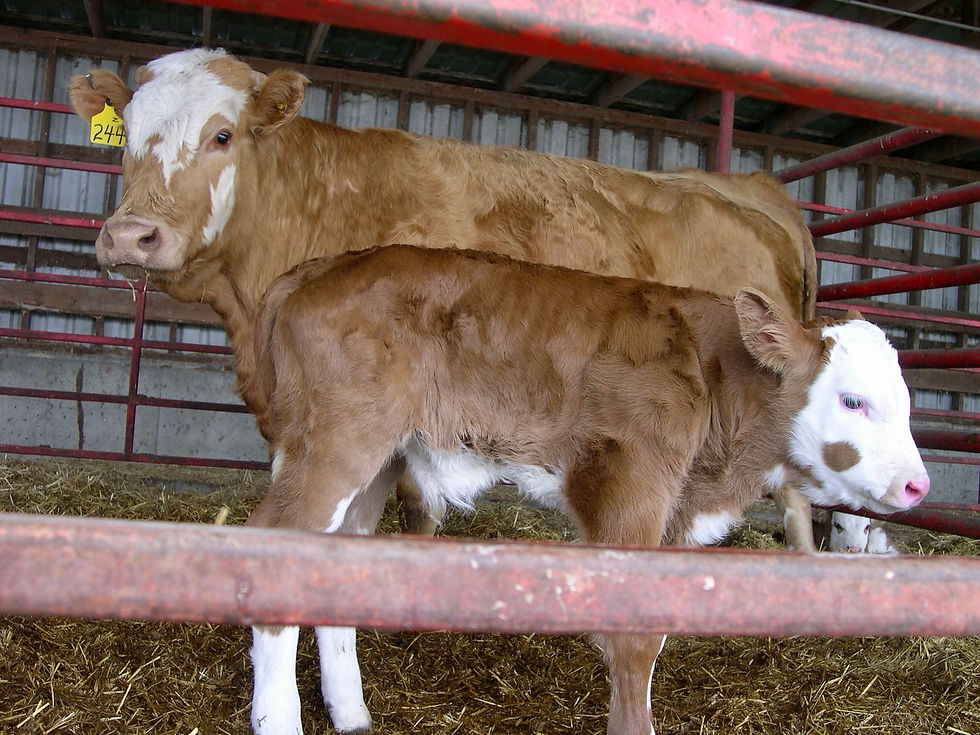
With a cold December, it was difficult to maintain cow body weight which has resulted in some animals being thin at calving. In a previous post (April, 2022), the negative impact of thin cows on reproductive efficiency was discussed.
The cow’s lactation period has the highest nutrient requirement in the annual production cycle. It is difficult to have cows or first calf heifers to gain weight. The inclusion of a high quality forage or silage along with cereal grains is necessary. The standard ration with 11% protein is adequate. But an energy level of 65% TDN (Total Digestible Nutrients) will maintain or result in minimal weight gain.
If the cow is 85 pounds lighter than required at calving, an additional pound of gain per day is needed for the animal to be in good condition at the start of the breeding season.
An example: a recommended ration for a 1,400 pound cow in good condition and gaining ¼ pound per day could be fed 35 pounds of good quality hay plus 5 to 6 pounds of barley or 12 pounds hay, 55 pounds of silage, and 5 to 6 pounds of barley grain. This ration is for temperatures above -20 degrees Celsius. If feeding oats, increase the grain feeding rate by 10%. The combination of hay and silage is needed to keep dry matter (DM) content at 50%.
Increasing the required weight gain per day to 1¼ pounds per day, the barley feeding rate increases to 9½ pounds per day, and hay or silage reduced accordingly.
Feeding an ionophore such as Bovatec or Rumensin improves overall feed efficiency by 5 to 7%. This improves weight gain. Barley feeding rates could be reduced to 7½ to 8 pounds. Depending on which ionophore is used, total feed intake can be expected to decline slightly.
The potential for a 20% reduction in pregnancy rates exist if body condition is not improved between calving and the start of the breeding season. Daily feed costs increase by approximately $1.25 per head, per day when increased amount of grain is fed. This extra expense is minimal compared to an animal not becoming pregnant.
For additional information on how to improve your cow’s body condition, contact Barry at 403-741-6032 or bjyaremcio@gmail.com.

Comments